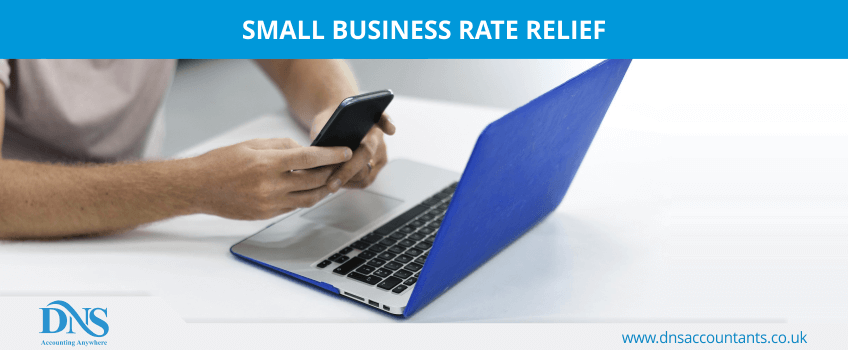Overview
Non-domestic rates (tax on the possession of non-domestic property) are referred to as business rates in the UK. Certain properties in the UK are entitled for discounts or available at mark-down prices from the local authorities which are referred to as ‘business rates relief’. Business rates are applicable on majority of non-domestic properties such as offices, guest houses or holiday rental homes, shops, pubs, factories, and warehouses. Individuals will have to pay business rates in case a building is used for non-domestic purpose. One should connect with an expert accountant if they have lingering doubts over business rates relief or want to know more about taxes to be paid for running a limited company .
Each year, in February or March, the local authority or council will send a business rates bill to individuals in the UK. An individual can seek assistance from the council if there are any questions with regards to the bill. Additionally, there is also an option to connect with the Valuation Office Agency (VOA) if an individual thinks that the ‘rateable value’ is incorrect. Individuals can apply for relief pertaining to charitable rate relief, enterprise zone relief, hardship relief, rural rate relief, and small business rate relief. Moreover, an individual may be able get a provisional reduction in the business rates in case the building is affected by certain local interruptions such as building issues, flooding, or roadwork
Small business rate relief

An individual can get small business rate relief for his small business if the rateable value of the property is less than £15,000 and the business only makes use of one property (in some cases an individual may still be able to get relief if he/she uses more than one). According to the 2017 revaluation, an individual might get small business relief, hence, the business rates relief bill won’t be in excess of £50 per month for the period 1 April 2017 to 31 March 2018. There have been some revision in the business rates – on business rates on a property with a rateable value of £12,000 or less and properties with rateable value ranging from £12,001 to £15,000, the tax rate of relief will reduce from 100% to 0%. Let’s understand this with an example, for a rateable value of £13,500, an individual will get 50% of the bill whereas for a rateable value is £14,000 an individual will get 33% off
When an individual receives a second property, he/she will still continue to get any prevailing relief for the foremost property for a period of 12 months. An individual might still be eligible to receive small business rate relief on the main property if both of the following applies:
- none of the other properties possessed by an individual have a rateable value in excess of £2,899
- the overall rateable value of the entire property of an individual is less than £20,000 or the value for London is £28,000
Certain small businesses might not qualify for small business rate relief. In case a property in England has a rateable value less than £51,000, the bill will be computed by taking into consideration the small business multiplier – this is usually lower than the standard one. This is applicable even when an individual does not receive a small business rate relief. For the period 1 April 2018 to 31 march 2019, the standard multiplier is 49.3p and small business multiplier is 48p.
Rural rate relief
An individual will not be able to claim for rural rate relief if the business is situated in a rural area where is population is more than 3,000. An individual will not have to pay business rates in case the business is in a eligible area and either:
- it is the only post office or village shop with a rateable value of a maximum of £8,500
- it is a petrol station or a public house with a rateable value of a maximum of £12,500
Charitable rate relief
If a property is used for charitable purpose, a community amateur sports clubs and charities in the UK can be eligible for charitable rate relief of a maximum of 80%. Individuals in the UK can contact the local council to seek advice on eligibility and enquire about how to top-up the discount to 100% (this is referred to as ‘discretionary relief’). However, under certain special conditions an individual might still be able to receive discretionary relief if he/she operates a non-profit or voluntary organisation
Enterprise zones
If an individual is setting-up or relocating the business to an enterprise zone he/she may still qualify for business rates relief. In such a scenario, the local council will work-out the application of business rates relief and an individual could get a maximum of £55,000 per year over a period of 5 years
Exempted buildings and empty buildings relief
Certain properties in the UK qualify for exemption from business rates. These include
- Land and building used for agricultural; this also includes fish farms
- Building used for well-being or training disabled people
- Building enumerated as a church hall or public religious worship
However, there are certain stringent lawful requirements to avail for these exemptions. For example, an individual owning a property in England, can report that he/she should be exempt using the Valuation Office Agency service, however, the way to report exemption varies if the property is situated in Wales
In case of an Empty property , an individual does not have to pay business rates on the vacant building for a period of 3 months. However, post this period, most businesses will have to pay full business rates. The following properties might get extended empty property relief:
- Building with a rateable value of less than £2,900 - until it is reoccupied
- Community amateur sports clubs buildings
- industrial premises (such as warehouses) are exempt for an additional period of 3 months
- Listed buildings until they’re occupied again
- Properties owned by charities
Hardship relief

In England, councils have the right to reduce the business rates bill with hardship relief. To be eligible for a reduce hardship relief, an individual must placate the council that both:
- He/she will get into a financial difficulties without it
- Providing hardship relief to an individual is in the interests of local residents
Transitional relief
This limit the variance in the bill each year. An individual can get transitional relief if the property is in England and rates increase or decrease by more than a certain amount. The business rates year is from 1 April to 31 March the following year
If the business rates relief bill is increasing
| Rateable value | 2017 – 2018 | 2018 – 2019 | 2019 – 2020 | 2020 – 2021 | 2021 - 2022 |
|---|---|---|---|---|---|
| Maximum of £20,000 (£28,000 in London) | 5.0% | 7.5% | 10.0% | 15.0% | 15.0% |
| 20,001 (28,001 in London) to £99,999 | 12.5% | 17.5% | 20.0% | 25.0% | 25.0% |
| In excess of £100,000 | 42.0% | 32.0% | 49.0% | 16.0% | 6.0% |
If the business rates relief bill is decreasing
| Rateable value | 2017 – 2018 | 2018 – 2019 | 2019 – 2020 | 2020 – 2021 | 2021 - 2022 |
|---|---|---|---|---|---|
| Maximum of £20,000 (£28,000 in London) | 20.0% | 30.0% | 35.0% | 55.0% | 55.0% |
| 20,001 (28,001 in London) to £99,999 | 10.0% | 15.0% | 20.0% | 25.0% | 25.0% |
| In excess of £100,000 | 4.1% | 4.6% | 5.9% | 5.8% | 4.8% |
Relief for pubs
An individual can receive a £1,000 off on business rates bill if he/she is operating a pub in England with a rateable value which is less than £100,000. The relief for pubs is applied from 1 April 2017 to 31 March 2018. The UK government is presently working on this scheme and will notify how an individual can receive the relief
Any questions? Schedule a call with one of our experts.








